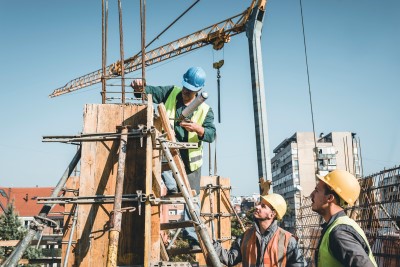
FAIR’s Efforts to Protect American Workers Reflected in Latest Trump Executive Order
FAIR Newsletter | Article 1 of 6 | September 2020 | Visit Our Newsletter Page | Full PDF Version
What a difference three months makes!

In late April, as the country was coming to grips with the devastating impact of the COVID-19 pandemic on the economy and the labor market, President Trump signed the first of several executive orders limiting the admission of immigrants and temporary foreign workers. The intent of the April executive order, however, was derailed by powerful business interests that convinced the White House to exclude most categories of guest workers from the admissions ban.
In response to the sell-out of the interests of American workers, FAIR led an effort to convince the White House to make good on the president’s promises to ensure that American workers would not lose jobs or job opportunities to foreign guest workers. Those efforts paid off. By June, the public pressure campaign led by FAIR convinced the Trump administration to strengthen the original order and limit admissions of guest workers.
But even the improved executive order did not provide American workers with all the protections they need, especially during a time of economic crisis. In July, it was revealed that the federally-owned Tennessee Valley Authority (TVA) (a public works project created by President Franklin Roosevelt during the Great Depression) was planning to outsource some 20 percent of its jobs to cheaper overseas labor markets and, at the same time, access H-1B workers to replace many American workers in jobs that remained in this country.

It is these sorts of abuses of the H-1B program (which allows U.S. employers to bring in skilled workers) and other temporary worker programs that FAIR has fought for years to end. The TVA is hardly the first employer to abuse the program and use it to undermine the interests of American workers. But the fact that it is a quasi-government entity, and the timing of the TVA’s action – in the midst of the greatest unemployment crisis since the Great Depression – made its abuse of the H-1B programs impossible to ignore or excuse.
FAIR, working with a coalition of American tech workers whose interests have been harmed by H-1B abuses, reached out to the White House. In addition, the U.S. Tech Workers Coalition ran TV ads in Tennessee (where most of the jobs were being lost or outsourced) demanding that the president use his authority to curb these sorts of abuses. On August 3, the president responded with the most far-reaching executive order aimed at ending the practice of replacing American workers with foreign guest workers.
The order requires employers seeking guest workers to demonstrate that they are not replacing American workers. This restriction applies both to direct government employers, like the TVA, and to companies with federal contracts. Big high tech companies – most of which have government contracts – are among the largest H-1B employers of H-1B workers. Employers would be required to prioritize the hiring of U.S. citizens and green card holders to fill jobs that become available as the economy recovers.
To the surprise of no one, the tech giants responded with a lawsuit. Amazon, Google, Facebook and Microsoft are among more than 50 of the nation’s biggest tech companies that have filed an amicus brief in the court case against the president’s proclamation. Ignoring the millions of idled American workers wondering if they will be able to make their mortgage payments or put food on their tables, the titans of the multitrillion dollar industry argued that the suspension of guestworker visas “does not further the interests of the United States” and that the requiring them to hire American workers “will stifle innovation, hinder growth, and ultimately harm U.S. workers.”

Notwithstanding the tech industry’s irrational claims, the August executive order provides some much needed relief for beleaguered American workers, but it does not represent a permanent fix for our broken guestworker programs. While the TVA’s actions violated the intent of the H-1B program, they were technically not illegal (or unique). A permanent fix will require action by Congress to tighten requirements for accessing H-1B and other guestworker programs. Congressional action to prevent all U.S. employers from hiring guest workers when qualified American workers are available, or from replacing existing workers with guest workers is long overdue. Likewise, Congress must act to prevent employers that outsource U.S. jobs to lower wage workers in other countries from accessing guest worker programs.
Congressional action, however, would require the two parties to work together – something that is increasingly rare these days – and standing up to powerful business interests that have fought hard to keep their access to guest workers in preference to American workers. Until then, the executive orders signed by President Trump in June and August are important stopgap measures and represent an important victory for the American people.

